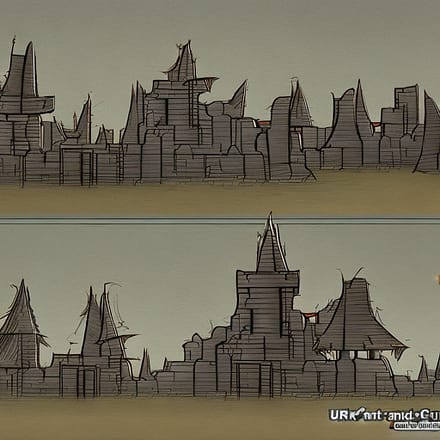
Table of Contents
The story of the 42 Laws of Ma’at
The 42 Laws of Ma’at, also known as the Declarations of Innocence or the Negative Confessions, are a set of ancient Egyptian principles that outline the moral and ethical code of conduct. These laws were believed to be given by the goddess Ma’at, who represented truth, justice, and balance.
According to Egyptian mythology, after death, the soul of the deceased would go through a judgment process in the Hall of Ma’at. In this judgment, the heart of the deceased would be weighed against the feather of Ma’at, symbolizing truth and harmony. If the heart was found to be pure and balanced, the person would be granted eternal life. However, if the heart was heavy with guilt and wrongdoing, it would be devoured by a fearsome creature called Ammit, and the soul would cease to exist.
The 42 Laws of Ma’at served as a guide for individuals to live an ethical life and maintain harmony with others. These laws were inscribed on the walls of tombs and temples, emphasizing their importance in Egyptian society. While there might be slight variations in the wording, the essence of the laws remains consistent across different sources.
Here is an overview of the principles they encompass:
- I have not committed acts of wickedness or caused pain.
- I have not committed robbery.
- I have not stolen.
- I have not killed anyone unlawfully.
- I have not defrauded others.
- I have not lied or spoken falsely.
- I have not blasphemed or cursed.
- I have not stolen sacred offerings.
- I have not plundered sacred places.
- I have not stolen food from the mouths of the gods.
- I have not caused harm to animals.
- I have not acted deceitfully or treacherously.
- I have not polluted the water or obstructed its flow.
- I have not stolen land or encroached upon it.
- I have not altered the measuring of land.
- I have not stolen grain.
- I have not stolen the offerings to the deceased.
- I have not disrupted the seasons or altered the clock.
- I have not deceived or acted insolently.
- I have not cursed or judged hastily.
- I have not been overly proud or arrogant.
- I have not dishonored the gods.
- I have not stolen or deprived others of their offerings.
- I have not stolen from or harmed children.
- I have not deprived the poor or the needy.
- I have not lied or spoken falsely to others.
- I have not caused grief or tears.
- I have not acted selfishly or without thought for others.
- I have not envied or coveted the possessions of others.
- I have not acted with excessive anger or rage.
- I have not cursed or blasphemed God.
- I have not acted without integrity or inappropriately.
- I have not sought excessive wealth.
- I have not defamed others or harmed their reputations.
- I have not eavesdropped or intruded upon the privacy of others.
- I have not conspired or plotted against others.
- I have not polluted myself.
- I have not caused fear or harm to others.
- I have not been untrustworthy or unreliable.
- I have not neglected or ignored truth.
- I have not attacked or harmed sacred places.
- I have not acted with deceit or dishonesty.
These laws emphasize the importance of maintaining moral integrity, respecting others, and living a life of balance and harmony. They provided guidelines for individuals to lead an ethical life and cultivate a just society in ancient Egypt.
Summarized version of the 42 Laws of Ma’at
| Law Number | Law of Ma’at |
| 1 | No wicked acts or causing pain |
| 2 | No robbery |
| 3 | No theft |
| 4 | No unlawful killing |
| 5 | No fraud |
| 6 | No lying or falsehood |
| 7 | No blasphemy or cursing |
| 8 | No stealing sacred offerings |
| 9 | No plundering sacred places |
| 10 | No stealing food from gods |
| 11 | No harm to animals |
| 12 | No deceit or treachery |
| 13 | No pollution of water |
| 14 | No stealing or encroaching on land |
| 15 | No altering land measurements |
| 16 | No stealing grain |
| 17 | No stealing offerings to the deceased |
| 18 | No disruption of seasons or clocks |
| 19 | No deception or insolence |
| 20 | No hasty cursing or judgment |
| 21 | No excessive pride or arrogance |
| 22 | No dishonoring of gods |
| 23 | No stealing or depriving others of offerings |
| 24 | No harming children |
| 25 | No deprivation of the poor or needy |
| 26 | No lying or falsehood towards others |
| 27 | No causing grief or tears |
| 28 | No selfishness or lack of consideration |
| 29 | No envy or coveting |
| 30 | No excessive anger or rage |
| 31 | No cursing or blaspheming God |
| 32 | No lack of integrity or inappropriate behavior |
| 33 | No seeking excessive wealth |
| 34 | No defamation or harming reputations |
| 35 | No eavesdropping or intrusion |
| 36 | No conspiracy or plotting |
| 37 | No self-pollution |
| 38 | No causing fear or harm to others |
| 39 | No untrustworthiness or unreliability |
| 40 | No neglect or ignorance of truth |
| 41 | No attack or harm to sacred places |
| 42 | No deceit or dishonesty |
This table provides a concise overview of the 42 Laws of Ma’at, presenting each law in a compact format for easy reference.
Shop Corner
42 Laws of Ma’at On Amazon
Video with Symbols of Ancient Egypt
Thank you for reading, shares and comments 👍
Sources openai Language models, aitrot, picsart and mib
Embark on a journey into the realm of affiliate marketing and craft your own website within a vibrant, supportive community. Join me in this adventure, where you can begin as a free starter and stay as long as you desire. Enjoy complimentary hosting and foundational teachings to set you on your path. For those with advanced skills, opportunities to elevate your expertise await. Take a moment to explore and witness the magic for yourself!




